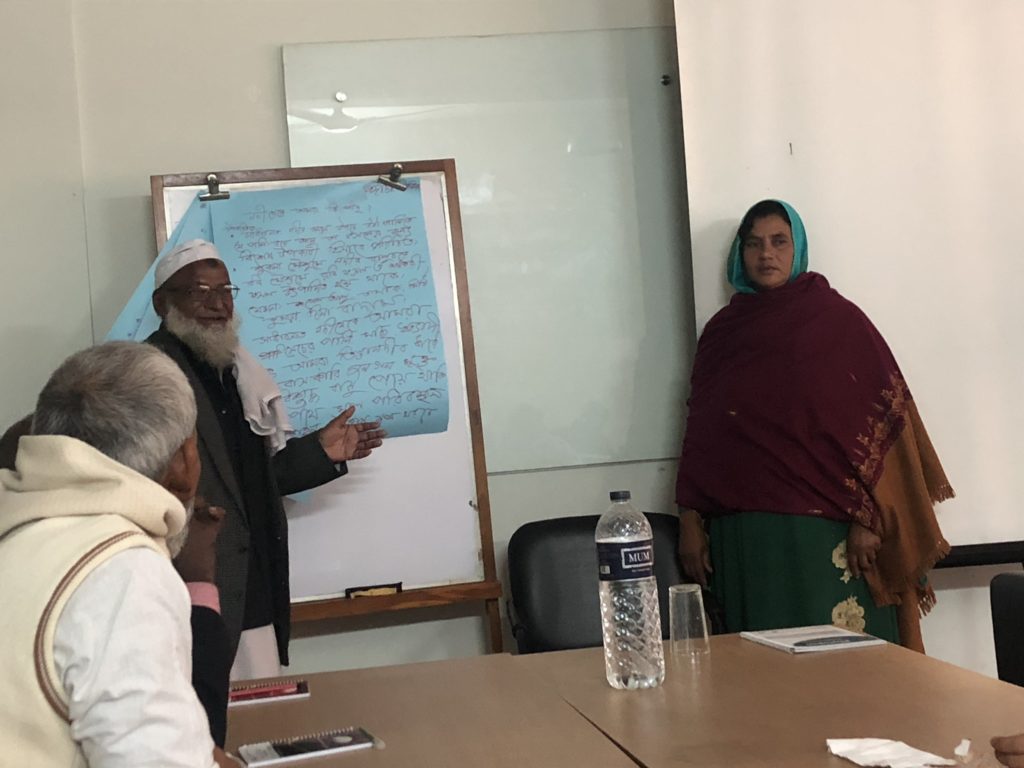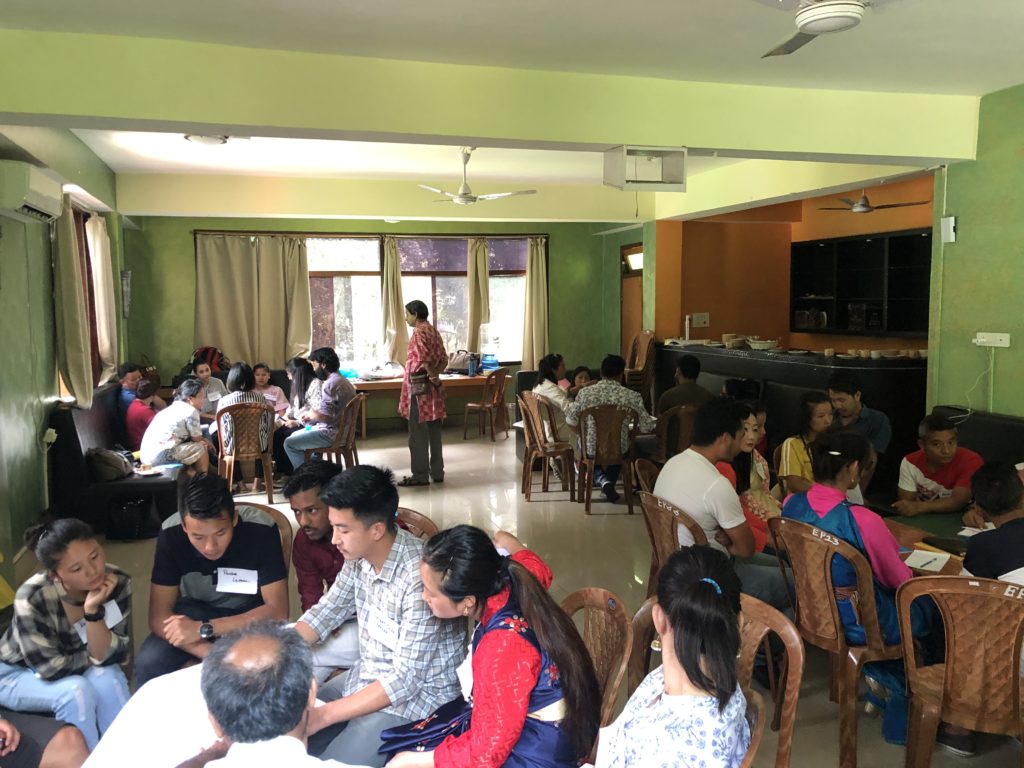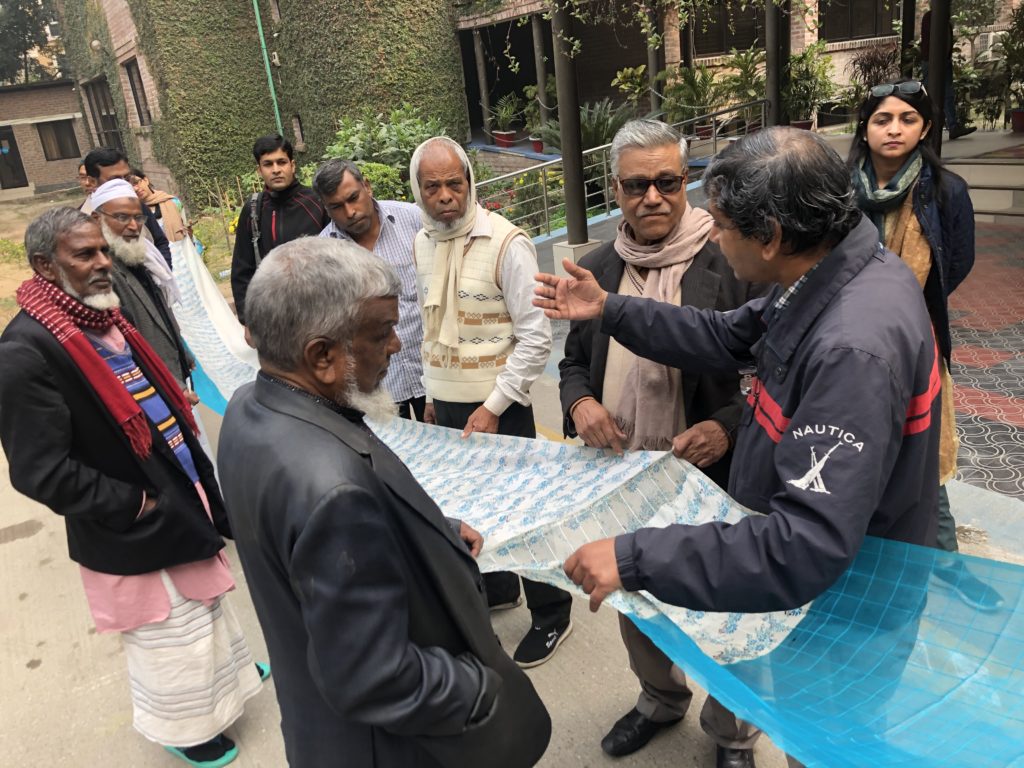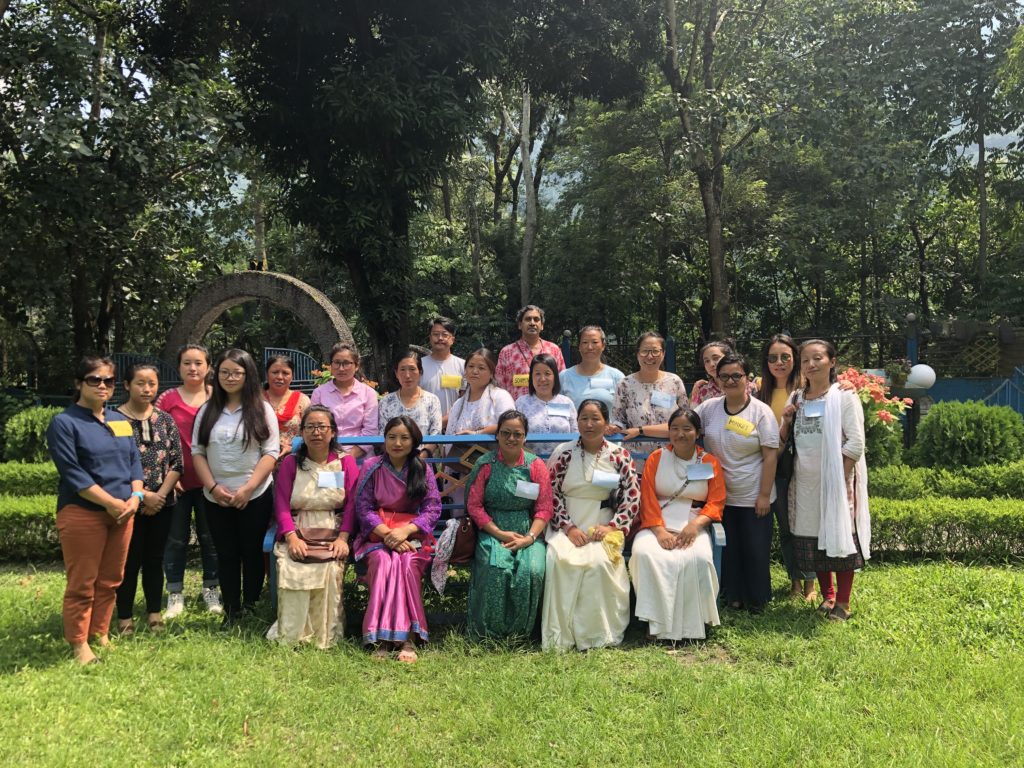By Ayesha DSouza, South Asia Program Coordinator for International Rivers
Traditionally, the management of water, especially rivers, was in the hands of the communities that lived by these sources. Over time, as development spread, newer governance systems were created, policies put in place with decisions being made by formal authorities. The strain on our water sources grew with the competing usage demands of domestic, agriculture, transport and energy. Community voices were heard less and less, women and other marginalized voices even less so. As nation states grew, so did the need for transboundary governance of rivers.

| Photo Credit: International Rivers
In an attempt to address some of these gaps, International Rivers along with consultants Soumya Dutta and Sabrina Gyorvary dreamed up and put together a community-based water governance curriculum and trainers guide for an 11 module workshop. This project was part of the Transboundary Rivers of South Asia program supported by the Government of Sweden. Over the course of the four years, we piloted the trainings in different places and eventually created this trainers manual so that more people can benefit from the training.
The trainers manual takes a trainer through the modules with an experiential focused style of delivery. Most importantly, is a module on gender and power in water resource mapping as we see there are knowledge gaps within many communities which needs to be addressed. Our work on women and rivers has shown us how important it is that women’s voices are heard and listened to at the decision making table.

In 2019 and 2020, International Rivers and partners piloted the workshop’s curriculum in India and Bangladesh and made changes. We hoped to one day run the updated workshop with participants from both countries, but unfortunately, the COVID-19 pandemic has made it very challenging for travel, especially international travel. Transboundary communication is crucial between the communities upstream and downstream and our workshop is an opportunity for breaking down barriers, bridging gaps and power dynamics.

If you, dear reader, are interested in running a training on water governance with your community and need our assistance please reach out. See the links below to download the trainers manuals with easy-to-follow exercises. As a starting point, the trainers guide has been translated into Hindi, Nepali and Bengali. These languages are the most used by the communities we work with in South Asia. We hope one day for it to be in many more languages and used by groups around the world.

International Rivers’ South Asia program is part of the regional Transboundary Rivers of South Asia program. Supported by the Government of Sweden, TROSA is a collaboration with Oxfam, IUCN, ICIMOD and many local organizations that works on some of the more complex rivers in South and Southeast Asia: the Ganga, Brahmaputra and Meghna river systems, including their tributaries such as the Teesta, and Asia’s last last free flowing river, the Salween. The program aims to contribute to poverty reduction and marginalization among vulnerable river basin communities through increased access to and control over riverine water resources on which their livelihoods depend.
